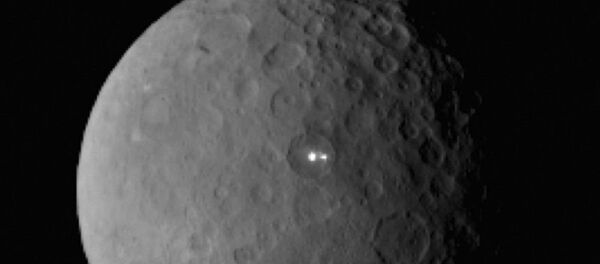Our sister planet with perhaps the greatest potential for extraterrestrial life in the solar system, the Martian surface is already littered with signs of our extraplanetary reach. In 2008, the Phoenix lander went dark after being overwhelmed by a dust storm, and is just one of several defunct robots abandoned on the Martian surface.
In addition to these expired machines, the red planet still hosts seven workable spacecraft. Five float in orbit, while the Opportunity and Curiosity rovers still roam the desert examining rocks and sand and soil.
It’s a pretty crowded place, is what I’m getting at. But on Friday, Japan’s space agency, JAXA, announced plans to launch its own probe, though its mission will stake out unclaimed territory.
Mars is orbited by two small moons, Phobos and Deimos, and JAXA’s mission will aim for one of these satellites, though it hasn’t decided which one.
Clearly, it’s still in the early planning stages. The project still needs to secure $241 million from the government to fund the mission, and even then, the earliest estimated launch date would be sometime around 2022. But it’s still a promising – though challenging – endeavor.
While a landing on one of Mars' moons would already be a first for humankind, the mission also plans to return, bringing rock samples with it. This could help explain some fundamental questions about the Martian system.
For one, we understand little about the origins of Phobos and Deimos. Because of their small size – Phobos, for example, is a mere 10 miles across – scientists believe they actually might be renegade asteroids which were wrangled in by Mars' gravity. Samples could help shed light on that hypothesis.
Even more promising is the possibility that the moons could hold answers to the disappearance of water oceans thought to have once covered much of the Martian surface.
Scientists once thought the water could have made its way downward, deep into the planet’s crust, as the Martian atmosphere evaporated. With little evidence supporting that belief, many suspect that the collapse of the planet’s magnetic field could have caused the water to leave the surface altogether.
If that’s the case, there may be evidence of the exodus left on Mars' moons, which could have absorbed some of the excess.
And then there are the practical applications that a successful landing on either Phobos or Deimos could provide. The gravity on Mars makes it difficult to safely lower a manned craft to the surface. It may be easier for any manned mission in the future to first land on one of the moons, where gravity is more forgiving. Astronauts could then be ferried to the red planet from a comparatively close distance.
NASA indicated as much last week when it announced its own plans to construct a base on Phobos.
JAXA could be in the beginning stages of not only uncovering Martian secrets, but in allowing safe, long-term human colonization.







